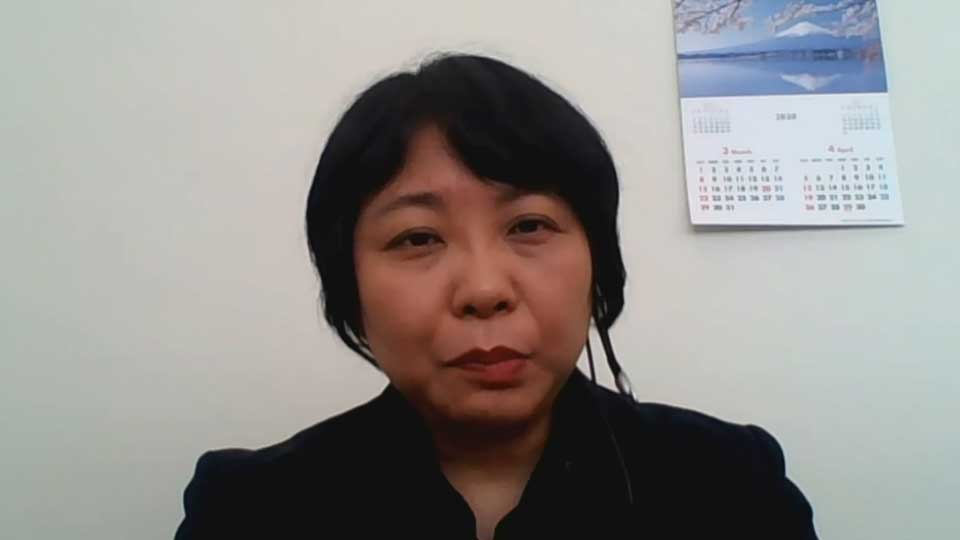Stress leads to abuse
On April 6, a man was arrested in Tokyo on suspicion of assaulting his wife. She later died of her injuries.
The man told police that his wife had upset him by making a comment about his small income. The couple were talking about how the coronavirus was affecting their financial situation when the incident unfolded.
"The stress of losing a job or seeing cuts to income can make some people turn abusive," says Kitanaka Chisato, the head of a Japanese organization that supports domestic violence victims. "Even if the person has never displayed abusive tendencies before, these can emerge suddenly."
Kitanaka says the economic difficulties of the current situation are exacerbated by the fact that people are being forced to stay at home. Victims often have nowhere to turn.
She says the reality is especially distressing for women who were ready to leave before the pandemic and now have to stay at home, where they could face further abuse.

"Shadow pandemic"
In a report issued on April 6, a United Nations organization for women's empowerment said the number of women being subjected to violence at the hands of their partners was increasing as couples were forced to spend more time together.
The report says domestic violence has increased by 30% in France since the start of a mandatory stay-at-home order on March 17. Other countries with significant jumps include Singapore and Cyprus, where calls to domestic violence hotlines have risen more than 30%. The report also says demand for women's shelters is growing in Canada, the United States, Germany, Spain and the United Kingdom.
On the other hand, the report says calls to hotlines have fallen in some areas, as women have found it difficult to contact the relevant authorities with their abusive partners always around.
In Italy, a domestic violence hotline received 55% fewer calls than normal in the first two weeks of March. A similar decline was reported in northern France. Kitanaka says this is what is unfolding in Japan as well.
"Some domestic violence centers have stopped in-person consultations because of the coronavirus," Kitanaka says. "At the same time, victims can't leave their homes and they can't call for help because their whole family is around. It's an all-around difficult situation."
The UN has urged governments to guarantee shelters and provide online services that women can use via text.
Kitanaka's organization is calling on the Japanese government to keep consultation centers open. She says a system offering flexible options for temporary protection needs to be in place before the centers are closed. In response, the government announced last week that it has launched a 24-hour consultation service that responds to calls, texts, and emails. Officials say it will be available in 10 foreign languages, including English and Chinese, starting in May.
But Kitanaka worries that no matter what measures are taken, the abuse will only increase as the pandemic continues to lay waste to the economy.
"Some people want to act big and take it out on others when they feel uncertain or when their pride is hurt," she says. "This is especially the case with people who felt secure in their role as the main earner and the head of the household. They lash out and attack their partners. I'm very concerned for families facing financial difficulties."
External help
"If victims are isolated with their families, it can be difficult to see for themselves how bad the situation is," Kitanaka says. "So it's crucial to speak with someone, like a friend or professional counselor, and listen to their advice."
Kitanaka says as policymakers focus on infection prevention and measures to protect the economy, it is important not to forget about abuse victims and to do everything we can to protect them.

